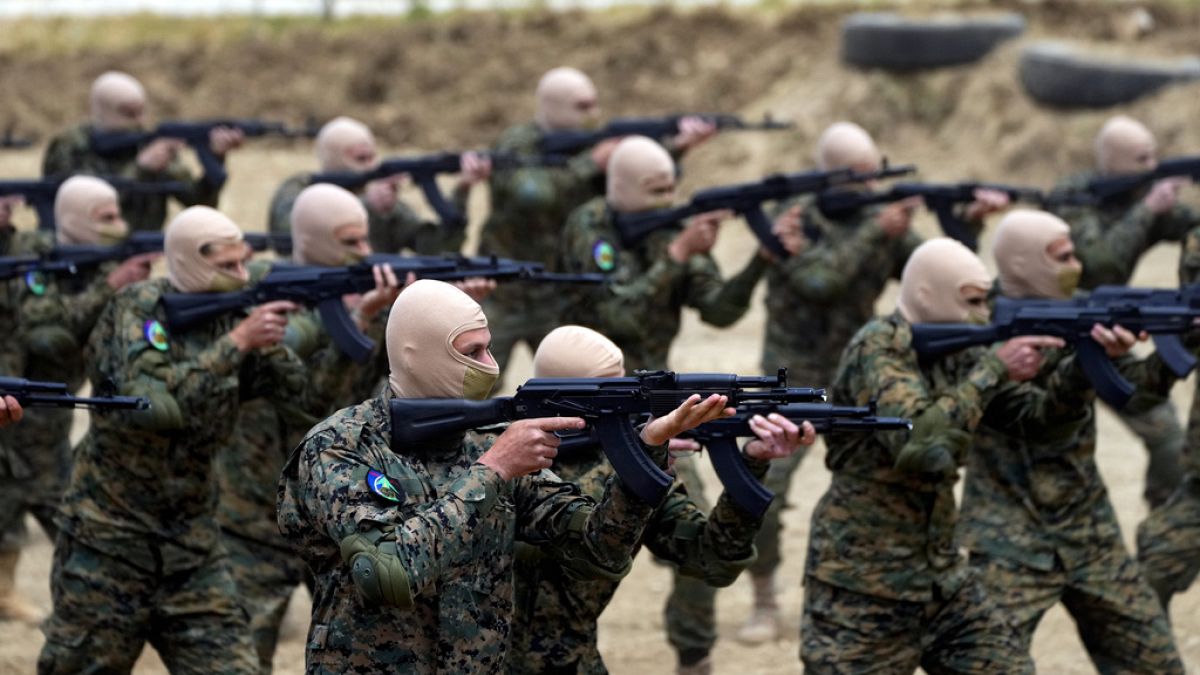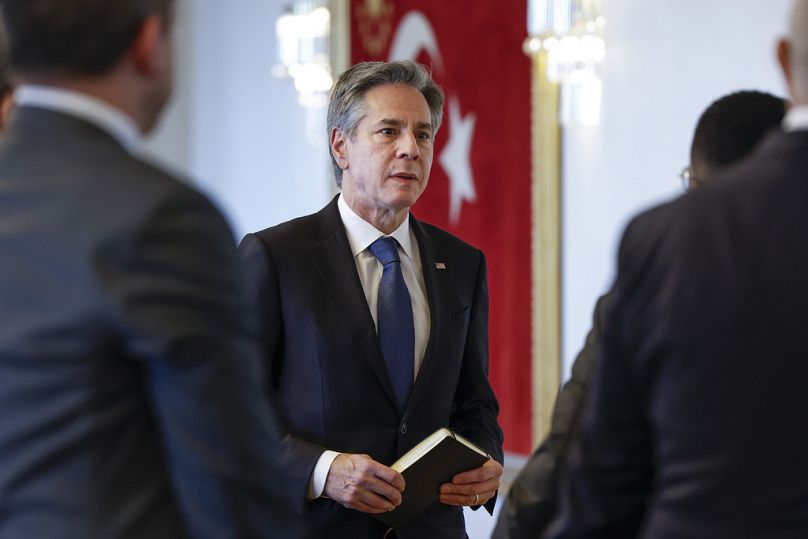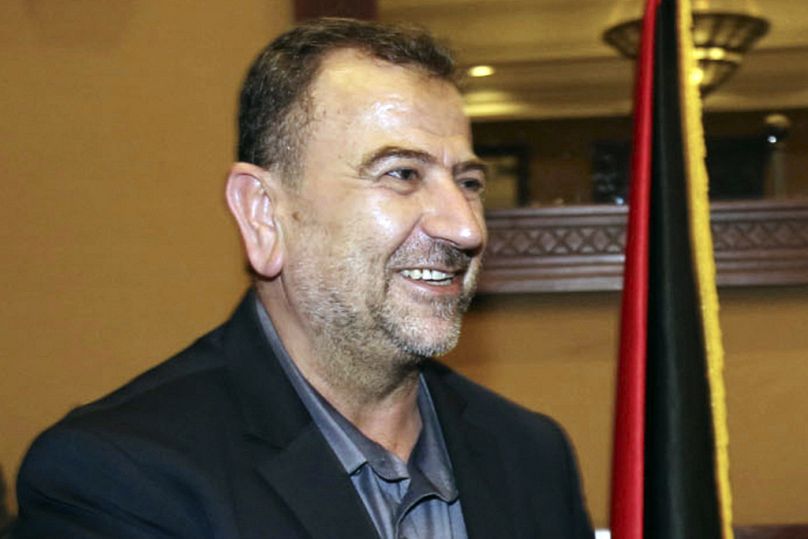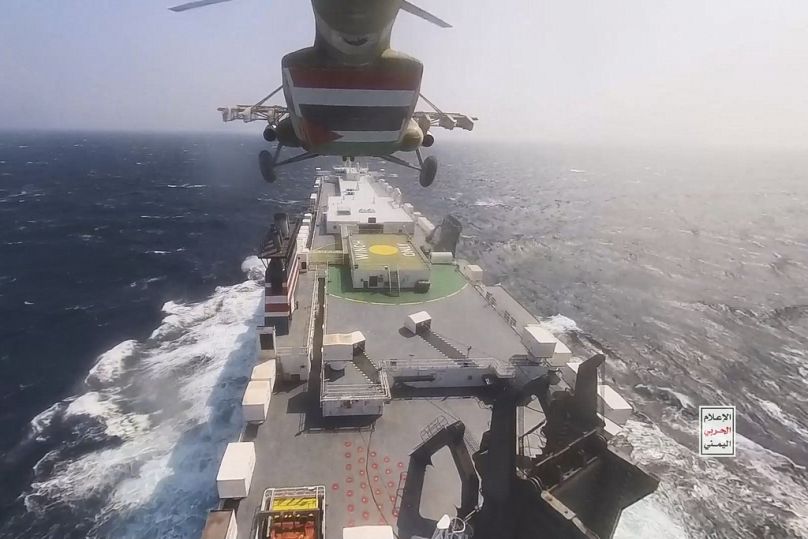Fighting in Gaza has already caused an uptick in violence across the Middle East - but could things get worse?
On Saturday, Hezbollah fired rockets at Israel after its alleged killing of Hamas' deputy political leader Saleh Arouri in Beirut.
But is it a one-off or the start of something larger?
Hezbollah's rocket attack against northern Israel came a day after its leader Sayyed Hassan Nasrallah said the militant group must retaliate for the killing.
If Hezbollah did not strike back, all of Lebanon would be vulnerable to Israeli attack, he warned.
Israel responded to Saturday's Hezbollah attacks by unleashing its fighter jets on south Lebanon, again raising the spectre of regional conflict.
However, some observers say the last thing Hezbollah - and wider Lebanon - want is for the bloody fighting between Israel and Hamas to spill over into their borders.
“Hezbollah has no interest in seeing Israel escalate things in Lebanon and so wouldn’t give it an opportunity to do so,” Dr Bashir Saade, a lecturer in politics and religion at the University of Stirling, tells Euronews.
“The killing of Arouri is not a setback for Hezbollah at all," he continues. "Resistance groups’ leaders have been targeted for decades and it hasn’t affected the ability of Hezbollah or others to operate.”
Yet, others see the rocket fire as a cross-border escalation.
Israeli military spokesman Rear Admiral Daniel Hagari said earlier that Israel was "on high readiness for any scenario” - suggesting the country is not ruling anything out.
Washington is worried about regional escalation.
Over the weekend, US Secretary of State Antony Blinken kicked off his fourth Middle East diplomatic tour.
The Biden administration feels regional countries like Turkey could lessen fears of a wider, with Blinken meeting Turkish President Recep Tayyip Erdogan on Saturday.
Tensions between Turkey and Israel are soaring. On Saturday, a court in Istanbul ordered 15 of 34 people detained on suspicion of spying for Israel to be held in prison.
Are Hezbollah a danger to Israel?
Since the fighting broke out in Gaza on 7 October, there have been daily reports of clashes between the Israeli forces and Hezbollah.
But, even if they were to up the ante, how much of a threat is Hezbollah to Israel?
The history between the two is tumultuous to say the least.
In 2006, Hezbollah sparked a month-long war after they captured two Israeli soldiers. More than 1,000 Lebanese people and 150 Israelis were killed.
The Shiite militant and political group is thought to have played a significant role in the ‘Gaza metro’ - an extensive network of tunnels built by Hamas throughout the enclave.
It’s thought that they were masterminded by Hezbollah commander Imad Mughnieh alongside Iranian commander Qasem Soleimani, who was killed in a US airstrike on Baghdad in 2020.
The Prime Minister of Lebanon has accused Israel of trying to "drag" it into a regional war but - and Saade tells Euronews this is an entirely possible scenario.
“Israel may be looking to convince the US to escalate regionally. By provoking the opposing groups to engage in any form of actions that could give Israel and the US the justification to do so,” he explains.
But, Saade offers a note of caution.
Though Hezbollah said the rockets fired on Saturday were an "initial response" to the killing of the Hamas official, he says the group could struggle to drag the region into wider war.
“Hezbollah is definitely the most powerful actor in Lebanon, but it cannot “control” Lebanon, as some parties may think. It needs to build alliances, compromise with different political agendas and orientations. So far I don’t see a reason for concern,” Saade claims.
There are, nevertheless, rumblings of increasing regional tensions across the Middle East.
The Yemen-based Houthi rebels have carried out at least 23 attacks on vessels in the Red Sea since 19 December. They say they are attacking Israeli or Israel-bound ships in support of the Palestinians.
The United States and 12 of their allies have issued an apparent final warning to the rebels to cease their strikes in the important shipping lane for world trade - or face potential targeted military action.
They’re hoping that warning will be enough to deter any more violence from factions who want it.
“The United States does not seek conflict with any nation or actor in the Middle East, nor do we want to see the war between Israel and Hamas widen in the region,” White House National Security Council spokesman John Kirby said last week.
“But neither will we shrink from the task of defending ourselves, our interests, our partners, or the free flow of international commerce,” he added.



